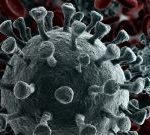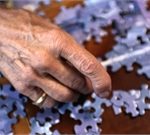
Most American parents know that sunscreen is important for their children, but there are gaps in their knowledge of its proper use, a new survey finds. The majority of the more than 1,100 parents of children aged 5 to 12 said they’ve at least sometimes used sunscreen on their kids, and that sunscreen is very important in preventing sunburns and skin cancer. However, the survey found that 11% of parents don’t have a specific minimum sun-protection factor (SPF) they use and 3% said they don’t use sunscreen for their child. Parents said they consider several factors in deciding whether to use sunscreen, including how long their child will be outside, what their child is wearing, their child’s complexion and skin tone, whether their child will be around water and how hot it is. Nearly half of parents take into account whether it is a sunny or cloudy day, according to the C.S. Mott Children’s Hospital National Poll on Children’s Health, from Michigan Medicine at the University of Michigan. “Parents should be aware that UV rays from the sun can reach their children on cloudy and hazy days, not just on bright and sunny days. Children need protection, regardless of the amount of sunshine,” poll co-director and pediatrician Dr. Gary Freed said in a university news release. The survey also found that parents decide whether to… read on >

















